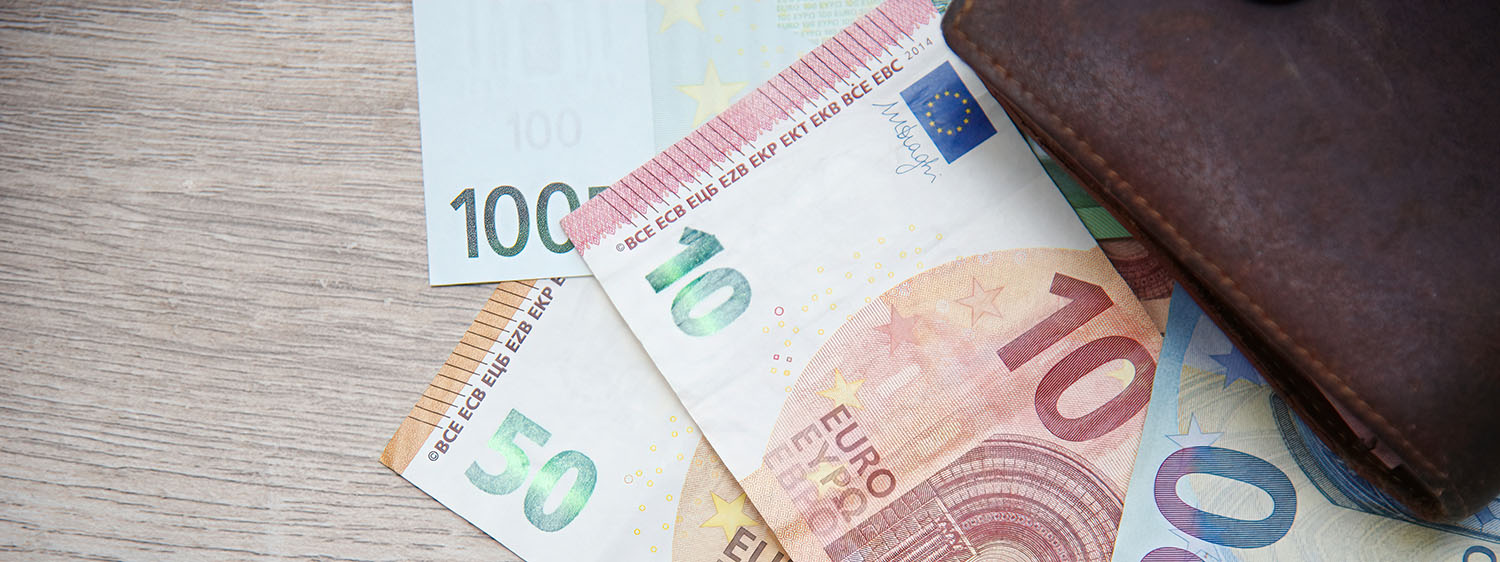

Government bonds or gold: which is the best buy?
Gold is traditionally regarded as the best asset for inflation protection, a reliable hedge against the risk of losing purchasing power. However, some investors see government bonds as a safer alternative to invest their money in the face of market uncertainty. We analyse the advantages and disadvantages of these two options.
Gold purchases over the past three years have had a stellar performance with record highs for investors and have seen a 40% rise in value. The safe-haven status generally attributed to gold has been confirmed by the uncertainty caused by the pandemic and subsequent inflation, which has penalised the performance of other assets. Once again, gold has provided a valuable hedge against an uncertain future.
Some economists argue that gold only increases in value when a currency is devalued or in a context of high inflation, and that it does not offer adequate returns in other market scenarios. While it is true that gold tends to increase in value in times of financial instability or currency devaluation, these are not the only factors that increase its valuation above average. For example, in the period from 2013 to 2020, inflation was very low, and the most damaging effects of the crisis and economic instability had already been overcome in much of the world, yet the value of gold rose steadily.
Even so, we have to bear in mind that, if we choose to invest in gold through an investment fund or ETF, we will not own the precious metal, which means it loses much of its intrinsic value, and it is a model that gives more versatility, but requires basic stock market knowledge that requires professional intermediaries in the sector. When you buy physical gold, you own the metal, whereas when you invest in digital gold, you have a right or an option. Moreover, because it is not a book entry, you cannot suspend payments. Unlike other financial assets, gold can always be on hand.
Government bonds
The biggest attraction of buying government bonds is that we are assured of a certain return, positive or negative, on the investment. This may seem contradictory, because historically, when someone lends money to someone else, they charge them interest, and therefore it may seem difficult to understand why some bonds are trading with a negative return.
This apparent inconsistency is due to the fact that some large investors seek safety in safe-haven assets, such as government bonds, during times of financial market turbulence. The 2008 crisis, with the collapse of Lehman Brothers and other banks, showed that the Deposit Guarantee Fund, which in Spain covers 100,000 euros per customer and institution, is nothing more than a consolation prize if we are talking about deposits of millions of euros.
Therefore, when we are talking about investment groups with large amounts of money, it may be preferable to buy bonds from countries with the highest credit rating (AAA), even when they offer a negative yield, since, unlike banks, this guarantees us pretty much all of our assets. Still, there may be a speculative motive: buying debt with a negative yield in the expectation that this yield will fall further so that the price of the bonds will rise.
This is a scenario that is hardly applicable to the medium or small investor, who tends to buy securities issued with a nominal value and which pay an explicitly determined interest on the investment, quarterly, every six months, or at maturity. And yet, they can also be traded on the stock market to offer investors the possibility to sell or buy before their maturity.
Security and profitability
Before investing, there are many factors to consider when deciding which financial asset is most suitable for us. And it is vital to assess the risk we are willing to take and to clearly define our investment objectives. As a general rule, the higher the return on an investment, the higher the risk. Conversely, if we want a very safe investment, we will have a low return.
Precious metals, especially gold, break this rule somewhat, with very high returns in times of economic crisis, given their status as safe-haven assets, and relatively stable prices when there is less demand in times of economic growth. But they always maintain a long-term upward trend, which is also accompanied by high liquidity thanks to their intrinsic value.
On the other hand, the risk-return trade-off is evident when it comes to government bonds. Fixed income securities issued by governments are considered risk-free as long as we are talking about developed countries with solvent economies, and with a practically non-existent probability of defaulting on payments to creditors. Even so, they are always accompanied by relatively low or even negative yields in the case of Germany.
This low yield can be affected by inflation, if we take into account that the coupons paid on fixed income are nominal over time. Therefore, when inflation rises, their real value falls and the return on these bonds is also lower. This is a scenario in which the purchase of gold offers better inflation protection, thanks to a higher yield, while maintaining high security and liquidity. If you are interested in buying gold, 11Onze will help you do so starting next week.
If you want to discover the best option to protect your savings, enter Preciosos 11Onze. will help you buy at the best price the safe-haven asset par excellence: physical gold.





Que bé em va anar aquesta informació a l’hora d’invertir
Clar que sí, Alícia. Empoderar la Comunitat és clau per 11Onze. Seguim a La Plaça.
Gràcies!
Gràcies, Joan. Seguim a La Plaça!
Gràcies👍
Gràcies a tu per ser-hi, Jordi!!!
👏
Gràcies, Daniela!!!
Molt Bona idea
Gràcies, Ricard. Estigues atent a La Plaça que les novetats s’acosten. Seguim a La Plaça!
Gràcies per les iniciatives. Gràcies per la informació.
Gràcies, Pere per seguir-nos i llegir-nos! Seguim a La Plaça.
Veurem com evoluciona…
Sí, Rosa; hem d’estar al cas. Gràcies per comentar!
Esperant amb il·lusió q arribi la propera setmana, per veure les diverses formes d’inversió en or e invertir en alguna d’eles
Gràcies, Manuel! Tots n’estem impacients.
Espero ilusionat! Una pregunta: També articulareu algún canal per invertir en criptos? els profans tenim por de Fer-ho sols. Gràcies i salut!
Encara no et podem respondre aquesta pregunta, Josep Maria, però en prenem nota. Gràcies per plantejar-ho!
Ok 👍
🙏
Atent a veure com es fa una inversió en or físic
Ben aviat, Francesc. Gràcies per remarcar-ho!
Que benvinguda,aquesta informació abans de com podem comprar or,està clar or físic, la pregunta és com es fa per no tenir-ho a casa?
Gràcies
Gràcies, Alicia, els pròxims dies explicarem les diferents formes de custòdia de l’or per no tenir-ho a casa.
Llavors, si comprem or, ha de ser físic, oi? Perquè sinó, llavors és millor comprar bons? I si el comprem físic, quan ens faci falta vendre’l, on ho podem fer? A 11 mateix?
Gràcies, Josep pel teu interès, aviat anunciarem totes les condicions d’aquest nou servei pels nostres clients
👌🏿👍🏿